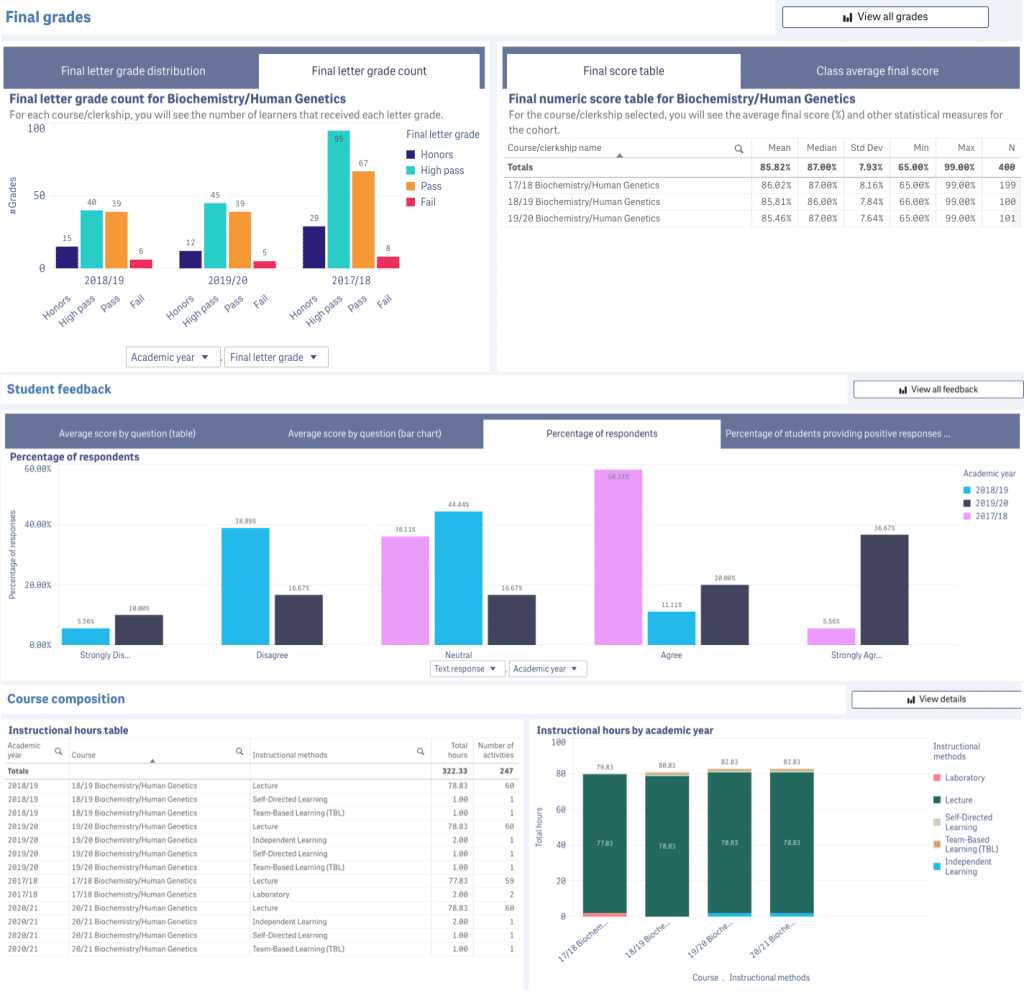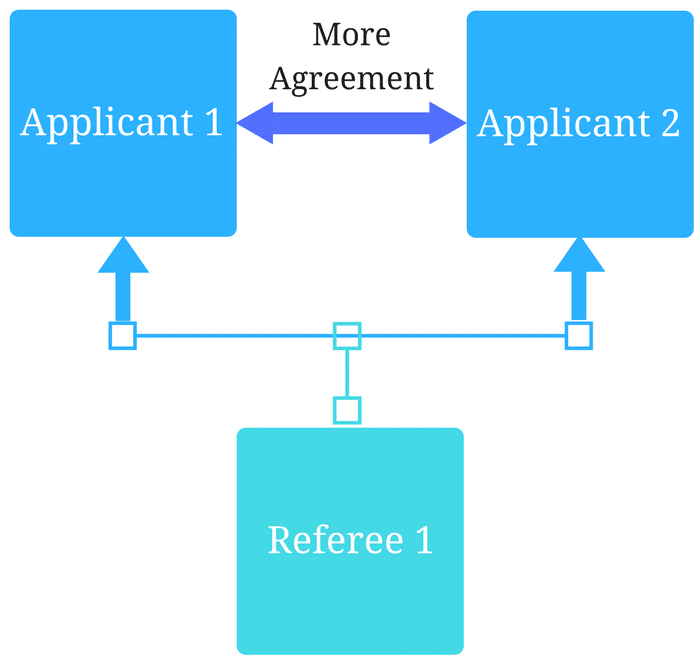Using Acuity Analytics for curriculum review at medical schools

September 25, 2020
For medical schools, gathering and analyzing accreditation data can be difficult. The information can be spread across multiple systems and multiple locations. Bringing it into one place for stakeholders to analyze can be a time-consuming and thankless task. Acuity Analytics solves this challenge by acting as a hub for all MedEd data, saving time that can be put to better use analyzing data or better still, taking action on the learnings.
A central repository for accreditation data
When MedEd institutions have multiple programs, locations, and distance learning options, curating the data from all of these sources is a challenge that often includes plenty of time, duplicated effort, risk of data corruption, and human error. Without a centralized system, information for a single learner might be spread across 12 or more databases, requiring it to be collected “manually” when it’s time for a review.
Reporting on MedEd data takes time. Time for the results to come in from their various systems, time to combine results across systems, time to curate the data into a reportable format, and time to share the data with all the people that need to see it.
Acuity Analytics eliminates these challenges by gathering and presenting the data all in one place. Curriculum administrators can easily parse the data into the formats they need so that analysis can be performed and results can be shared with stakeholders in easy-to-comprehend formats like charts and graphs.
How Acuity Analytics can help
Acuity Analytics’ easy-to-use data analysis tools help deans and directors navigate the following responsibilities:
- analyzing and understanding program and course performance and formulating recommendations for student outcomes and learning environments
- longitudinal analysis, like tracking whether course and curriculum changes year-to-year are moving performance measures in the right direction
- ensuring accreditation requirements are being met, reporting findings internally
- ensuring program objectives are being met
- keeping curriculum current with evolving standards
- gathering meaningful feedback from learners for program evaluation
- reviewing results as they come in, to spot struggling learners or problems with assessment instruments
- identifying and address any data quality issues
Most importantly, Acuity Analytics will help deans balance their clinical and research portfolio by freeing up their valuable time.
The flexibility of reports with Acuity Analytics
The system offers a breadth of different dashboards to support a large number of different curriculum and course assessment tasks.
For example, the course review dashboard in Acuity Analytics allows stakeholders to review:
- final grades, including grade distribution and class averages, and final scores
- student feedback with average scores and percentage of respondents
- course composition with instructional hours data across academic years
- course exam metrics
- any necessary adjustments for specific course reporting needs

If the institution has unique needs for reporting and analysis, Acuity allows for multiple different dashboards and reporting options, rather than limiting users to a single dashboard or view.
“It’s much easier now for a committee to be able to see what I’m talking about visually,” says Courtney Marsden, Sr. Assessment and Evaluation Specialist at Northeast Ohio Medical University (NEOMED), a nationally-ranked hospital and higher education institution. NEOMED made the switch to Acuity Analytics and now enjoys convenient access to multiple dashboards that are in use by their various committees. “If I can show a visual chart and make it look pretty, it’s much easier to interpret. It saves time for the committee because it’s right there and you can easily see it.”
Integration with existing curriculum data in the MedEd ecosystem
Acuity Analytics can incorporate a wide variety of data sources into the data warehouse and offer visualizations of all of the data within the dashboard tools to accommodate the unique needs of MedEd data. Potential data sources include everything from learning management systems (like Canvas), student information systems (like Banner), Exam data – including a partnership integrating data from Examsoft, assessment systems and custom school data requirements to offer a complete picture of curriculum for in depth review.
Customers of Acuity’s existing products like curriculum mapping can take advantage of the deep integration with their existing Acuity ecosystem data. For all institutions, the ability to pull data from multiple sources will help allow for the comprehensive and meaningful analysis of all of the pertinent data.
“Instead of having to submit another tech ticket to my IT folks to say ‘Hey, I need you to pull this data for me,’ it’s now all in Analytics,” says Courtney. “So a couple of years from now I don’t have to worry about going through someone else. I have it all living in Analytics.”
Customer support from our curriculum data experts
In addition to providing tools that help MedEd institutions focus on their goals of creating better learner outcomes, our team at Acuity are always interested in collecting feedback from our customers and making improvements or customizations to better suit their unique requirements.
“My best advice would be to work with the folks at Acuity,” says Courtney. “If you have something that you want, it doesn’t hurt to ask them. They’ve been wonderful.”
Overview on using Acuity Analytics to prepare for course review.
If you’d like to learn more about Acuity Analytics please request a demo and we will show you what’s possible for your institution.
Related Articles

How interviews could be misleading your admissions...
Most schools consider the interview an important portion of their admissions process, hence a considerable…
Reference letters in academic admissions: useful o...
Because of the lack of innovation, there are often few opportunities to examine current legacy…
